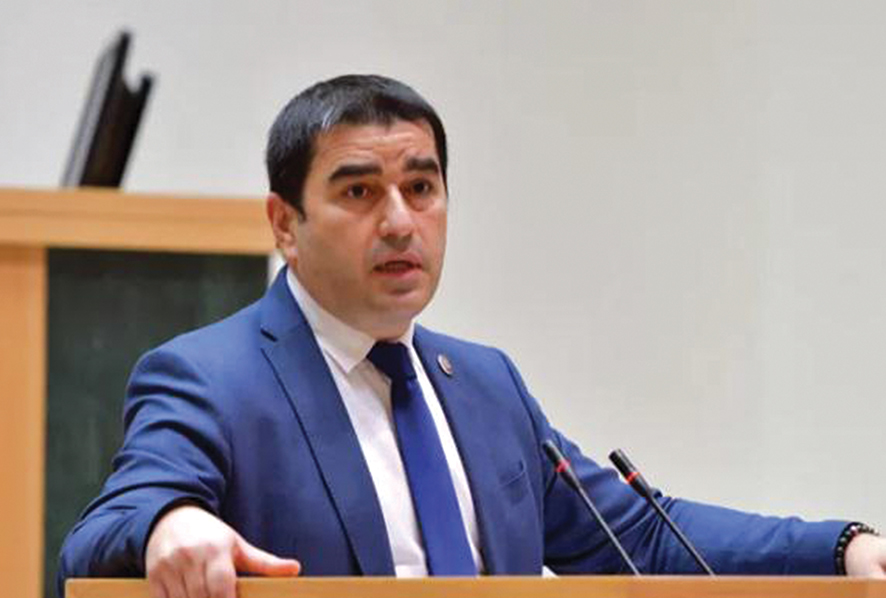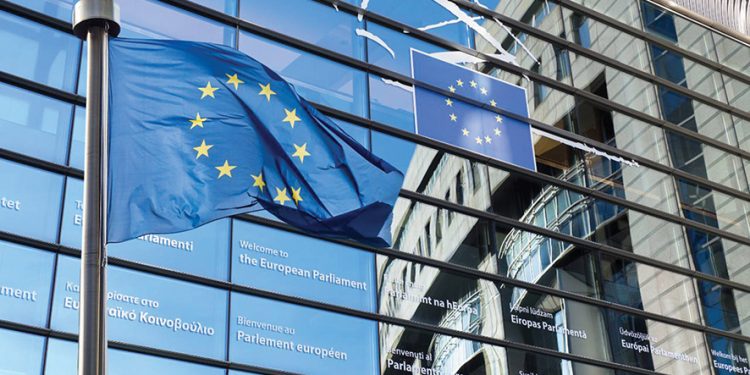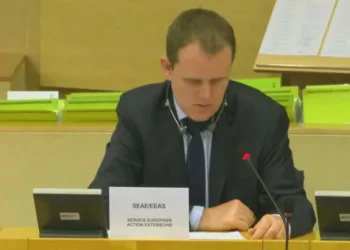On October 9, the European Parliament adopted the resolution ‘On the Decline of Democracy and Threats to Political Pluralism in Georgia’ with a vote of 495 in favor and 73 against. This resolution articulates serious concerns regarding the erosion of democratic principles in Georgia and outlines specific actions the European Union should take in response. The draft calls for the freezing of EU aid to the Georgian government, sanctions against Bidzina Ivanishvili and other individuals responsible for this democratic decline, and a thorough assessment of anti-democratic laws concerning visa liberalization criteria.
The resolution further demands that the Georgian government cease its campaign of intimidation against political opponents and stop disseminating anti-Western disinformation. It calls for the imposition of sanctions on Russia, the release of former president Mikheil Saakashvili on humanitarian grounds, and a commitment to a peaceful transfer of power based on the upcoming election results. The concerns highlighted in the draft resolution underscore a troubling trend that has been unfolding in Georgia over recent months, marked by increasing attacks on democratic norms.
The joint resolution is the result of collaboration among several political groups within the European Parliament, including the European People’s Party (EPP), European Conservatives and Reformists (ECR), Renew Europe, Greens (Verts/ALE), and Social Democrats. It reflects a unified stance on the threats facing Georgian democracy. As noted in the resolution, the so-called “Foreign agents law,” laws limiting LGBTQ+ rights, and changes to the election code have raised significant alarms. The authors express concern over a promise by the ruling Georgian Dream party to ban the opposition, along with the party’s growing anti-Western rhetoric directed at Georgia’s democratic partners.
“This hostile rhetoric also applies to Ukraine, as the ruling party uses vile political banners depicting Ukrainian cities destroyed by Russia and profiting from the suffering of brave Ukrainians,” the draft resolution reads, drawing attention to the harmful effects of the ruling party’s political strategies. Furthermore, it emphasizes the troubling approval by Georgian leaders of statements from Russian officials suggesting that Moscow could assist Georgia in normalizing relations with the separatist regions of Abkhazia and South Ossetia. This stance represents a significant departure from the government’s previous policy of recognizing these regions as occupied.
The European Parliament resolution explicitly states its deep regret over the ongoing democratic backsliding in Georgia, particularly as the country approaches parliamentary elections on October 26. It strongly condemns the adoption of laws related to “transparency of foreign influence” and “family values and protection of minors,” viewing them as tools for violating freedom of expression, censoring media, and limiting critical voices in civil society. The resolution emphasizes that these actions are incompatible with the values of the European Union and damage Georgia’s international reputation, jeopardizing its Euro-Atlantic integration.

“[The European Parliament] condemns the personal role of Georgian oligarch Bidzina Ivanishvili, who returned to active politics on December 30, 2023, when he became the ‘honorary chairman’ of the ‘Georgian Dream’ party, in the current political crisis and in digging the foundation for the country’s Euro-Atlantic orientation in order to turn to Russia,” the resolution states. It calls for immediate and targeted sanctions against Ivanishvili for his role in undermining Georgia’s political landscape and reaffirms the importance of holding accountable all individuals responsible for spreading anti-democratic practices.
In a significant acknowledgment of Georgia’s aspirations, the resolution notes that on December 14 and 15, 2023, the European Council granted Georgia candidate country status, contingent upon the implementation of the recommendations made by the European Commission. However, the recently adopted laws are seen as contradictory to these ambitions, impeding Georgia’s integration into the European Union.
The resolution also reiterates the demand for Saakashvili’s immediate and unconditional release on humanitarian grounds, underscoring the government’s responsibility for his health and safety.
“The resolution which the European Parliament will adopt today goes beyond our accustomed disappointment,” stated Georgian Parliament Speaker Shalva Papuashvili at a briefing. He criticized the resolution as based on “false narratives and personal attacks,” particularly regarding the call for sanctions on Ivanishvili.
“The message, which urges the imposing of sanctions on Bidzina Ivanishvili, is disturbing. This is the EP’s third resolution where certain forces utilize EU institutions to attack Bidzina Ivanishvili and incite political retribution,” he added. Papuashvili argued that the resolution reflects an obsession with Ivanishvili and misrepresents his role in maintaining peace in Georgia.
Moreover, he condemned the demand for bilateral sanctions on Russia, stating, “It is disgusting to openly demand the imposition of bilateral sanctions on Russia in the EU’s first official resolution.” He cautioned that such sanctions would not harm Russia, but could lead Georgia into economic turmoil and heightened risks of military confrontation.
Papuashvili also expressed concern over the timing of the resolution, which comes just days before the elections, viewing it as an attempt to manipulate voter sentiment. He urged all foreign actors to respect Georgia’s sovereignty and democratic processes, emphasizing the need for elections free from external influence.
The resolution by the European Parliament reflects a critical juncture for Georgia as it grapples with internal challenges to its democracy while navigating complex geopolitical pressures. As the country approaches pivotal elections, the calls for accountability and adherence to democratic norms are more pressing than ever.
By Team GT














